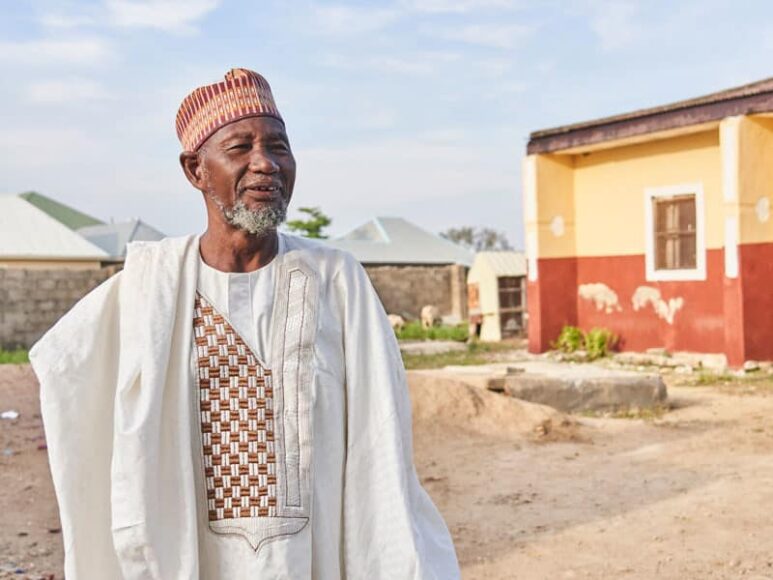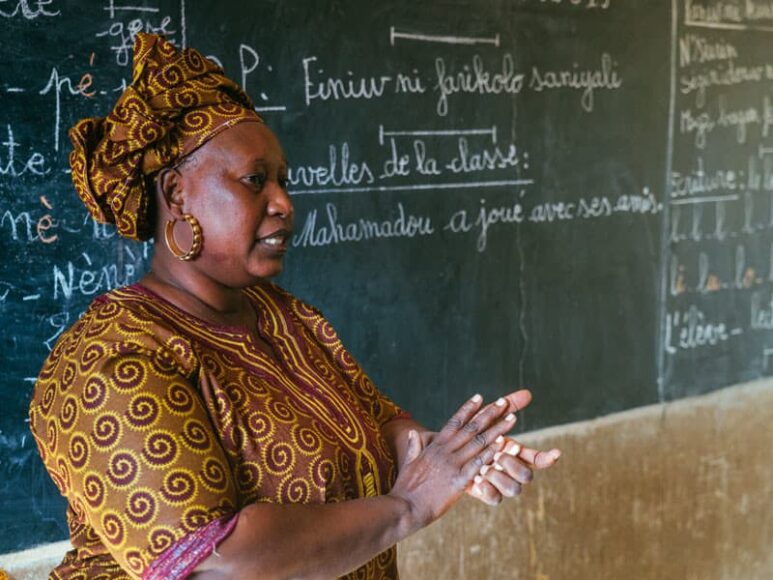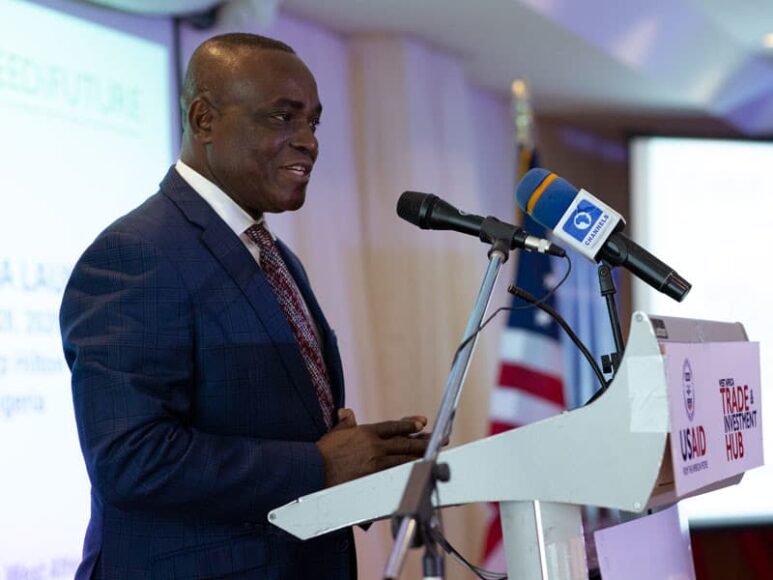Durante o passado 60 anos, Vários países em desenvolvimento embarcaram no caminho para a autoconfiança econômica. Nem todos eles conseguiram alcançar a mudança positiva que aspiravam. Então, quão longe chegamos? Embora o progresso tenha sido feito, tem sido lento. Há muito mais a ser feito.
A autoconfiança não é um conceito novo de desenvolvimento-existe há algum tempo sob nomes diferentes, incluindo independência econômica, Auto-suficiência, o caminho a seguir, confiando em recursos locais, etc.. Independentemente do nome, Esses conceitos apontaram para um objetivo: países enquadrando sua própria estratégia de desenvolvimento e alcançando -a à sua maneira e no seu próprio ritmo. No final desta jornada para a autoconfiança, As nações seriam capazes de permanecer sozinhas com pouco ou nenhum apoio ao desenvolvimento do governo a governo. Ao longo do caminho, Recursos locais e internacionais seriam mobilizados para liderar o progresso econômico e social rápido e tangível.
Refletindo sobre a jornada para a autoconfiança na África Subsaariana em particular, Muitos países foram desafiados a definir seu próprio curso e permanecer nele. Também está claro que a jornada para a autoconfiança não pode ser feita solo; requer companheiros de viagem confiáveis.

Países em desenvolvimento traçando seu próprio caminho
A obtenção de autoconfiança requer estratégias de desenvolvimento caseiras que constroem economias fortes, instituições eficientes, ativos de recursos humanos altamente qualificados e sistemas financeiros robustos e inclusivos. Os governos precisam de forte vontade política e disciplina para realizar essas estratégias. No entanto, Muitos países encobriram suas próprias necessidades de desenvolvimento e, em vez disso, copiaram outros modelos sem considerar a dinâmica local. Durante a Guerra Fria, por exemplo, A Etiópia adaptou o modelo de desenvolvimento econômico da antiga União Soviética após a aquisição militar de 1974. A nacionalização do setor privado trouxe a economia para o caos completo, o setor de fabricação e serviço em particular.
Para conseguir se tornar autossuficiente, Os países precisam envolver o maior número possível de partes interessadas e explorar os recursos locais, incluindo o setor público e privado, comunidades locais, parceiros regionais e internacionais, pequenas e grandes empresas, CSOs locais, etc.. No entanto, Vimos vários países promovendo esquemas de desenvolvimento liderados pelo Estado à custa do setor privado e de outras partes interessadas. Houve um preço a pagar por isso também. Eritreia, Guiné Bissau e Moçambique, por exemplo, Optado por economias lideradas pelo Estado após décadas de guerra pela independência. O resultado são economias paralisadas ou regressão.
Tanto quanto os países devem promover e incentivar o setor privado, Existem armadilhas para se concentrar apenas na criação e acumulação de capital e desconsiderando a lacuna de riqueza que essa política econômica poderia criar. Vemos a desigualdade de riqueza comum em grande parte da África Subsaariana. Nigéria, por exemplo, é um rico país produtor de petróleo que tinha 112 milhões de pessoas que vivem na pobreza em 2010, de acordo com Oxfam. Sobre 130 milhões de pessoas não têm acesso a saneamento adequado, 57 milhões não têm acesso a água segura, E o país tem o maior número de crianças em idade escolar no mundo. Oxfam descobriu que a pobreza e a desigualdade na Nigéria não são devidas à falta de recursos, mas ao uso do mal, Malocação e apropriação indevida de recursos. Caminhos em direção à autoconfiança não devem priorizar os ganhos do setor privado sobre o bem-estar da população.
Os países devem ter como objetivo garantir que ninguém seja deixado para trás à medida que avançam em direção à autoconfiança e permaneçam responsivos às necessidades da juventude, mulheres e outros grupos marginalizados. De acordo com o Brookings Institution, A taxa de desemprego juvenil está acima 20 porcentagem em Gana e Zimbábue, acima 30 porcentagem no Botsuana e Maurícia, e acima mesmo 60 porcentagem na África do Sul. Esse fenômeno pode ter graves consequências na estabilidade desses países, pois os jovens desempregados são mais vulneráveis a se juntar a movimentos políticos extremistas ou migrar, negando um país seus ativos de recursos humanos. Responder a esse desafio requer um investimento em programas sociais e econômicos que apóiam o bem -estar da juventude, Mulheres e outros grupos marginalizados e criam uma oportunidade para demonstrarem seu valor para suas comunidades e nações.

Instituições públicas fortes e eficientes e entidades do setor privado que praticam responsabilidade e transparência e enraizam a corrupção também são cruciais para a jornada para a autoconfiança. Isso requer forte regulamentação, estado de direito e boa governança que permite às pessoas o direito de expressar livremente suas opiniões, organizar, Vote sem medo de perseguição e outras liberdades civis. Vários países têm lutado para construir instituições que funcionem ou serviço público e para combater a corrupção. De acordo com o Fundação Mo Ibrahim, 34 Os países melhoraram seu desempenho de governança em relação ao último 10 anos, mas 18 As pontuações dos países diminuíram.
Claro, Um dos maiores obstáculos da jornada para a autoconfiança é a desestabilização e o conflito. De acordo com o Polity IV Database, África ainda é o lar de pelo menos 11 regimes totalmente autocráticos. Três chefes de estado africanos estão no poder desde a década de 1970, e cinco desde os anos 80. Desde 1996, 11 países foram envolvidos em guerras civis. De acordo com o 2020 Índice de Paz Global, A África Subsaariana registrou uma ligeira queda em paz, e o nível de paz se deteriorou em 24 países. Esse declínio é caracterizado por agitação civil e protestos violentos que eclodiram em muitos países no ano passado, que podem ser atribuídos a disputas sobre os resultados das eleições e demandas por mudanças políticas.
Em estados frágeis em particular, Programas de desenvolvimento de base que são contextualizados e responsivos podem construir resiliência comunitária e mitigar os efeitos do desastre e conflito.
Apoiando jogadores na jornada para a autoconfiança
Enquanto cada país deve traçar seu próprio curso, A jornada para a autoconfiança ainda requer companheiros de viagem ao longo do caminho.
Tecnologia, por exemplo, pode ajudar os países a encontrar inovações de ponta para apoiar sua agenda de desenvolvimento. Ruanda está utilizando drones para distribuir medicamentos para as áreas rurais. O dinheiro móvel pode substituir os sistemas de transação tradicionais para facilitar o comércio suave no mercado interno, regional e internacionalmente. A expansão do acesso à Internet pode conectar pessoas com informações. Adoção da Internet móvel atualmente fica em 24 porcentagem na África Subsaariana, que explica 40 porcentagem da população global não coberta por uma rede de banda larga móvel. A ponte da lacuna de conectividade exigirá mais trabalho, investimento e vontade política.
Construir a autoconfiança exige colaboração regional e integração econômica. Exige a formação de uma frente comum para abordar os problemas mais prementes do mundo. Deve incentivar o fluxo livre de pessoas de um país para o outro. Pandemias como Covid-19 e Ebola, As mudanças climáticas e a luta contra o extremismo violento demonstraram a extrema necessidade de colaboração regional.
Em tudo isso, Parceiros internacionais têm um papel a desempenhar não como motoristas da autoconfiança, mas como parceiros iguais.

Essa abordagem é eficaz quando vários parceiros estabelecem em conjunto uma base baseada em valores e visão compartilhados, onde ambas as partes definem seus objetivos estratégicos de desenvolvimento e maneiras de alcançá -los. Esse tipo de parceria recíproca permite que cada lado fortaleça e complemente o outro, acabando com o relacionamento tradicional de doador-recipiente. Este é um processo de empoderamento econômico que se baseia na confiança, confiança, a solidariedade da visão e abordagem, e reconhecimento de contribuição mútua para um empreendimento comum.
Parceiros internacionais devem ter a cortesia de olhar de perto a agenda nacional ou local e apreciar, respeitar e incentivar soluções caseiras e propriedade local. A autoconfiança não é atingível quando parceiros internacionais criam dependência.
No entanto, Os parceiros internacionais podem ser fundamentais para apoiar a jornada para a autoconfiança, trabalhando com os países em desenvolvimento para enquadrar suas agendas de desenvolvimento e apoiar processos informados de tomada de decisão com base em dados e melhores práticas.
Parceiros internacionais têm a vantagem econômica e política de facilitar a troca dessas melhores práticas e promover a cooperação, comércio e investimento. O Sociedade de Educação Internacional Comparada (CIA) é um exemplo. Forneceu um fórum para a troca de melhores práticas em educação internacional. O Fórum Econômico Mundial também é um fórum de multilateralismo não convencional que reconhece empresas internacionais e outros jogadores não estatais a par dos estados. O fórum estabeleceu uma reputação como uma entidade independente que pode fornecer uma plataforma flexível e neutra para promover a colaboração e parceria global. O Centros comerciais As agências de financiamento bilateral e multi-laterais pretendem incentivar o comércio e o investimento e fortalecer o setor privado.
O 2030 Agenda para o Desenvolvimento Sustentável, adotado por todos os estados membros das Nações Unidas em 2015, Também fornece um plano compartilhado para a paz e a prosperidade para as pessoas e o planeta, agora e no futuro.
Muitos países ao redor do mundo começaram sua jornada para a autoconfiança. Definindo seus próprios objetivos, assumindo um compromisso com eles e alistando o apoio de parceiros regionais e internacionais, Eles podem continuar a avançar.
Semere Salomão é Diretor Sênior do Africa Center da Creative Associates International.